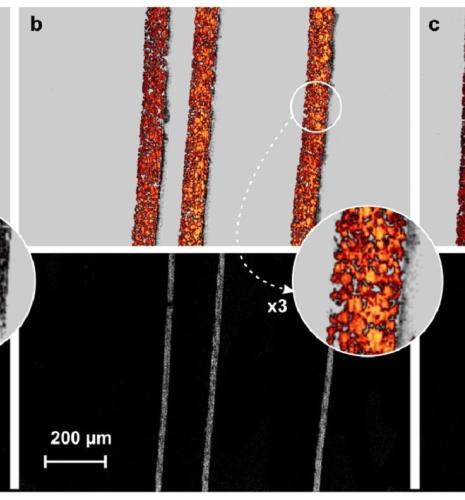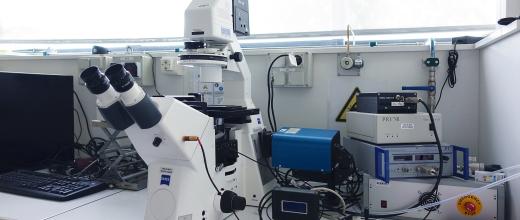
News in brief
Link between chemical diversity and enzyme reactivity: multi-technique exploration for bio-based fuels.
Lignocellulosic biomass is a renewable resource for which conversion into bioethanol is a promising avenue for producing alternative, low-carbon fuels. Converting this biomass requires a pretreatment step to break it down. However, this process generates compounds that can inhibit the action of enzymes used to hydrolyze cellulose into glucose, thereby reducing the efficiency of this reaction. In order to improve the profitability of such processes, these inhibitors need to be identified, but their presence in a highly complex environment composed of several hundred products is a real challenge.

News in brief
Hyperspectral camera characterization of plastic recycling flows
[ Process control and online analysis - 2/2 ] Plastics recycling is both a major environmental challenge and an emerging industrial sector for which IFPEN mobilizes its expertise and know-how in the field of hydrocarbon refining. From the point of view of recyclability, a significant feature of these new material flows is their high level of variability, both in terms of their composition (types of polymers, additives, mixed textiles, etc.) and their physical nature (multilayer plastics, reverse side/right side fabrics, etc.), and indeed sorting errors. It is therefore essential to develop continuous analyses in order to determine the quality of the flow to to be processed, based on the relevant properties of the materials contained.

News in brief
Spectral methods for online monitoring of a polyolefin recycling process
[ Process control and online analysis - 1/2 ] Since they first appeared at the end of the 19th century, plastic materials have gradually become an integral part of our daily lives. While the benefits of these materials are undeniable, there is increasing concern about what happens to them at the end of their life. Therefore, in addition to reducing them at their source, the recycling of these polymer materials is now a major environmental priority.

News in brief
SC4 - Deep learning for fluid characterization
Data from NIRS are processed mathematically, via chemometric approaches, generally using a Partial Least Squares (PLS)-type model. This linear methodology is aimed at establishing a statistical relationship, represented by the maximum covariance, between an explanatory variable X and a response variable y. It has been successfully used at IFPEN to predict the properties of oil products and, in recent years, it has mirrored the evolution of new energy technologies (NET)...

News in brief
SC2 - Biofuel production: understanding and controlling corrosion by renewable feedstocks
Biofuels are one of the components of the transition to renewable energies, and their use is an effective way of decarbonizing transport. However, they are produced from feedstocks whose composition can affect the steel equipment used for their conversion. For example, the hydrotreatment of vegetable oils and animal fats leads to the exposure to high concentrations of oxygenated compounds, naturally present in the initial feedstock or resulting from their conversion...

News in brief
Ageing of technical fluids in multifunctional environments
By combining battery, electric machine, power electronics and mechanical transmission, the electric vehicle is an example of an application that combines a range of constraints for the formulation of technical fluids. In recent years, there has been renewed interest in the study of the latter for the transport sector...
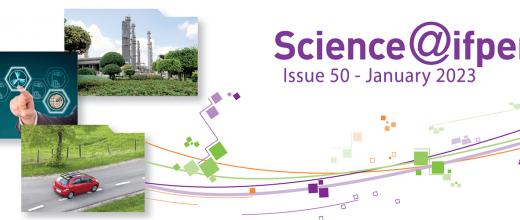
News in brief
The in silico creation of molecular structures
What chemical engineer has never dreamed of having access to a tool that can directly identify a fluid (pure substance or mixture) on the basis of characteristics necessary to a given application context? This Holy Grail could become a reality thanks to the field of Chemoinformatics and its methods...
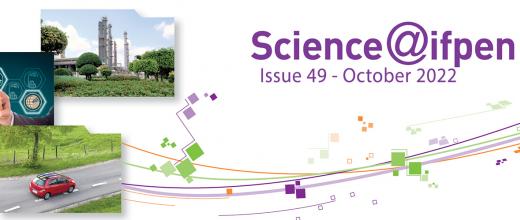
News in brief
Microfluidics and Chemoinformatics: a highly complementary approach to studying material/fluid compatibility
Pour de nombreuses applications industrielles, comme le recyclage chimique des plastiques, ou encore pour assurer la compatibilité entre polymères et nouveaux carburants, il est essentiel d’anticiper les interactions entre matériaux et fluides...
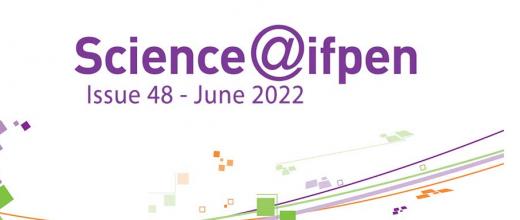
News in brief
Cheminformatics and its descriptors: application to polymer/fluid compatibility
Ensuring compatibility between polymers and fluids is essential in numerous industrial sectors: in the automotive sector, for example, the resistance of materials used in the fuel supply system is a vital consideration.
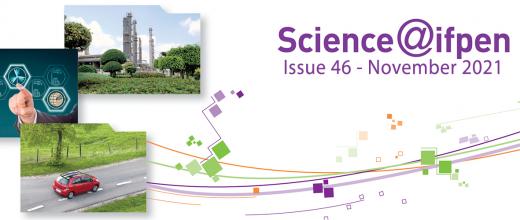
News in brief
Flair Suite™: supporting environmental and industrial gas monitoring
Today, air quality is an issue of major concern when it comes to public health. To protect it, it is necessary to reduce emissions but also monitor global chemical changes taking place in the atmosphere. From the economic and safety points of view, it is also important to monitor industrial gas emissions. It was to tackle these different aspects that IFPEN’s researchers began developing a range of technological solutions, within the context of the Flair Suite™ project.





